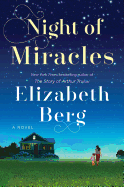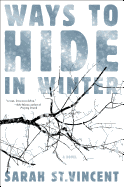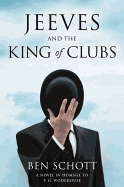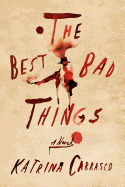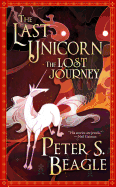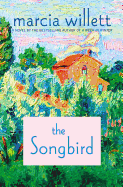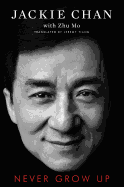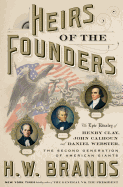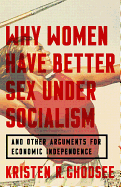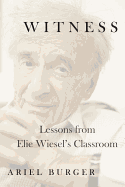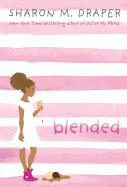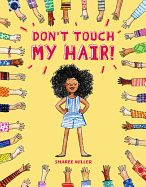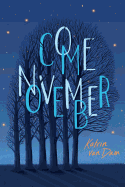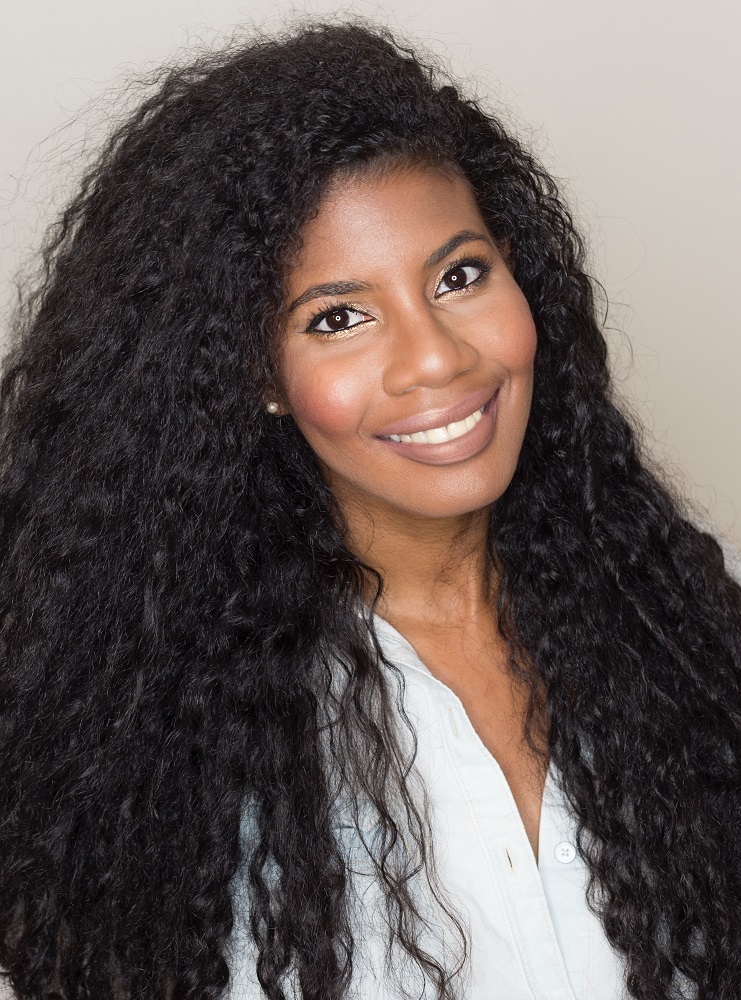 |
| photo: Nigel Livingstone |
Atlanta native Nic Stone is the author of Dear Martin, which Booklist called "vivid and powerful." Odd One Out (Crown Books for Young Readers) is Stone's second novel and the book she wishes she'd had back when she was trying to figure out who it's okay to love.
You can find her fangirling over her husband and sons on Twitter and Instagram at @getnicced, or on her website, nicstone.info.
On your nightstand now:
I'm moving house and always traveling, so the book that's been coming everywhere with me is Heads of the Colored People by Nafissa Thompson-Spires. It's a collection of adult short stories that was longlisted for the National Book Award and is a finalist for the Kirkus Prize. Never in my life have I read a book that's SO relatable. I feel like it was written for me. It's hilarious and gasp-inducing, and definitely my favorite book of the year.
Favorite book when you were a child:
The Encyclopedia Brown books by Donald J. Sobol. I have vivid memories of being in two different elementary school libraries and tearing through the collections of mini-mysteries--with solutions in the back!--like my life depended on it. Leroy was wicked smart and noticed the smallest things, and I wanted to be just like him.
Your top five authors:
Jason Reynolds, voice master; Matthew Quick, king of the existential crisis; Jodi Picoult, goddess of moral dilemmas; Jesmyn Ward, because Jesmyn Ward; and Toni Morrison, the O.G.
Book you've faked reading:
The Odyssey and The Iliad by Homer. In my defense, I was this little black girl in an all-white class, and I was kind of sick of alllllll these assigned reading books that didn't have me in them. Unlike some of the others I went back and read later (Fahrenheit 451, for instance), I haven't given these another go. *shrug*
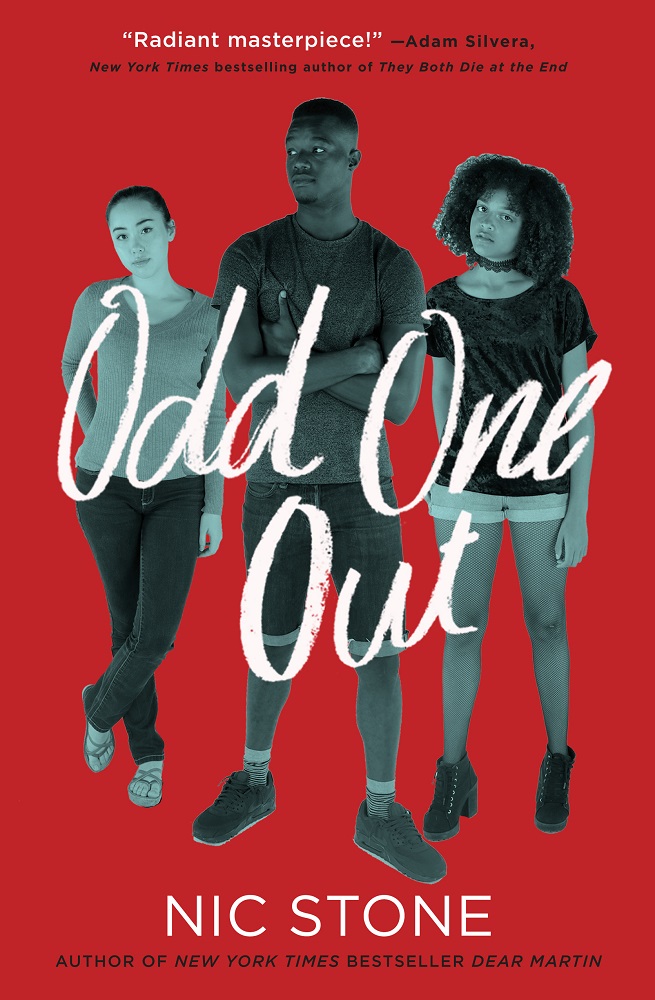 Book you're an evangelist for:
Book you're an evangelist for:
Spinning by Tillie Walden. It's a graphic novel about a young girl who is simultaneously falling out of love with her childhood passion--figure skating--and in love with someone she doesn't expect. It is a real deal, perfectly drawn (pun intended) coming-of-age story, and everyone on earth needs to read it right now.
Book you've bought for the cover:
Learning to Breathe by Janice Lynn Mather. I haven't read it yet, but the beautiful, overtly-not-skinny-minny black girl in gray scale combined with the pops of color from the illustrated vine leapt off the shelf and into my arms at Barnes & Noble in Charlotte, North Carolina, one stormy Thursday in July.
Book you hid from your parents:
Some Danielle Steel something or other I stole from my mom. Which, looking back, probably means there was no point in hiding it, since I'm sure she realized it was missing. Lots of throbbing members in that one.
Book that changed your life:
The Virgin Suicides by Jeffrey Eugenides. What's wild is that this book is about five entitled white sisters living in this white microcosmic middle-of-nowhere town who, over the course of a year, all die by suicide--so the furthest thing from my personal experience in concept. BUT. Up until that point, I'd never encountered a book that had characters I could relate to. Luz specifically was bae. I own multiple editions.
Favorite line from a book:
"We are not sent into the world to air our moral prejudices." --Lord Henry Wotton, from The Picture of Dorian Gray by Oscar Wilde
Five books you'll never part with:
When I Was the Greatest by Jason Reynolds, my "so black kids can sound like black kids in books?!" book; Grasshopper Jungle by Andrew Smith, my introduction to the power of the absurd in YA; The Color Purple by Alice Walker--Shug Avery is my muse; The Virgin Suicides by Jeffrey Eugenides, see answer above about life change; Harry Potter and the Prisoner of Azkaban by J.K. Rowling, the book when ish got REAL.
Book you most want to read again for the first time:
Allegedly by Tiffany D. Jackson. Maaaan this book.... The experience of reading through to the end and making the discovery of the Thing... I would love to have that experience again. So much emotion! (**deliberately vague response**)
Book I wish I'd written:
Another Brooklyn by Jacqueline Woodson. The fact that Ms. Woodson spans like 20 years--in-depth!--in fewer than 200 pages?! This is a skill I'd like to develop.
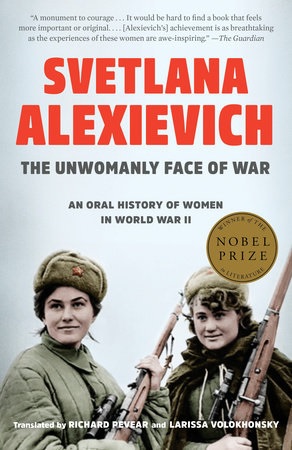 Done well, oral histories can offer a more intimate perspective. In the field of Soviet history, attention has to be paid to the Nobel Prize-winning work of Svetlana Alexievich, whose oral histories have been praised as "polyphonic writings." Her body of work, including The Unwomanly Face of War (Random House, $18) and Voices from Chernobyl (Dalkey Archive Press, $26), represent, to my mind, the very best of the oral history form, personalizing history in ways that make it approachable and disquietingly intimate. From Voices from Chernobyl: "Sometimes I think it'd be better if you didn't write about us. Then people wouldn't be so afraid. No one talks about cancer in the home of a person who's sick with it. And if someone is in jail with a life sentence, no one mentions that, either."
Done well, oral histories can offer a more intimate perspective. In the field of Soviet history, attention has to be paid to the Nobel Prize-winning work of Svetlana Alexievich, whose oral histories have been praised as "polyphonic writings." Her body of work, including The Unwomanly Face of War (Random House, $18) and Voices from Chernobyl (Dalkey Archive Press, $26), represent, to my mind, the very best of the oral history form, personalizing history in ways that make it approachable and disquietingly intimate. From Voices from Chernobyl: "Sometimes I think it'd be better if you didn't write about us. Then people wouldn't be so afraid. No one talks about cancer in the home of a person who's sick with it. And if someone is in jail with a life sentence, no one mentions that, either."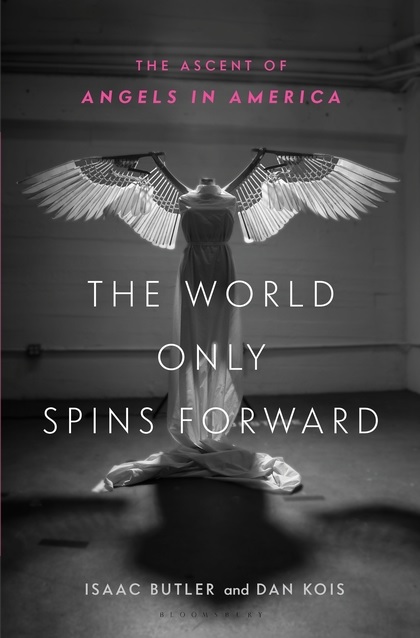 The World Only Spins Forward: The Ascent of Angels in America by Isaac Butler and Dan Kois (Bloomsbury, $30) offers new perspectives on the creation and legacy of a dramatic masterpiece. The oral history offers useful insight into the play, but I was especially moved by firsthand accounts of the queer community in the shadow of AIDS. If these histories have anything in common other than the format, it's that they had me constantly underlining passages and/or reading them aloud to a friend. Oral histories call out to be shared and appreciated by as many people as possible. --Hank Stephenson, bookseller, Flyleaf Books, Chapel Hill, N.C.
The World Only Spins Forward: The Ascent of Angels in America by Isaac Butler and Dan Kois (Bloomsbury, $30) offers new perspectives on the creation and legacy of a dramatic masterpiece. The oral history offers useful insight into the play, but I was especially moved by firsthand accounts of the queer community in the shadow of AIDS. If these histories have anything in common other than the format, it's that they had me constantly underlining passages and/or reading them aloud to a friend. Oral histories call out to be shared and appreciated by as many people as possible. --Hank Stephenson, bookseller, Flyleaf Books, Chapel Hill, N.C.



 Book you're an evangelist for:
Book you're an evangelist for: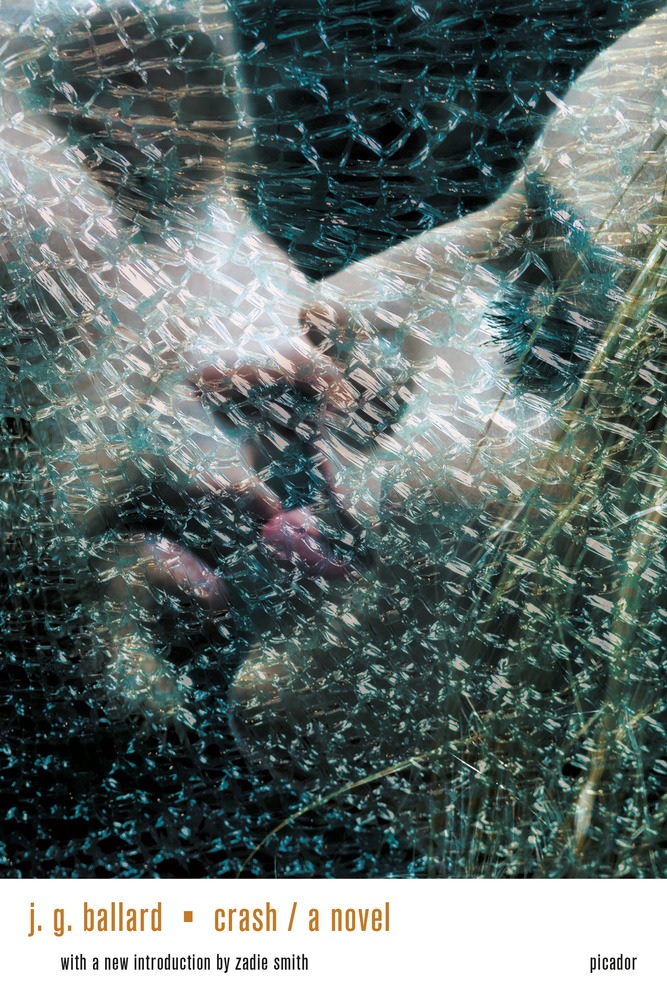 After narrator James Ballard is injured in a car crash near London Airport, he develops symphorophilia--sexual attraction to accidents--and joins a cult of like-minded masochists seeking pleasure in deliberate freeway destruction. Crash by J.G. Ballard (1973) is as insane as it sounds, likewise violent and sexually graphic. Prior to its publication, one submission-sifter declared: "This author is beyond psychiatric help. Do Not Publish!" Said reader ought to be forgiven, if ignored.
After narrator James Ballard is injured in a car crash near London Airport, he develops symphorophilia--sexual attraction to accidents--and joins a cult of like-minded masochists seeking pleasure in deliberate freeway destruction. Crash by J.G. Ballard (1973) is as insane as it sounds, likewise violent and sexually graphic. Prior to its publication, one submission-sifter declared: "This author is beyond psychiatric help. Do Not Publish!" Said reader ought to be forgiven, if ignored.